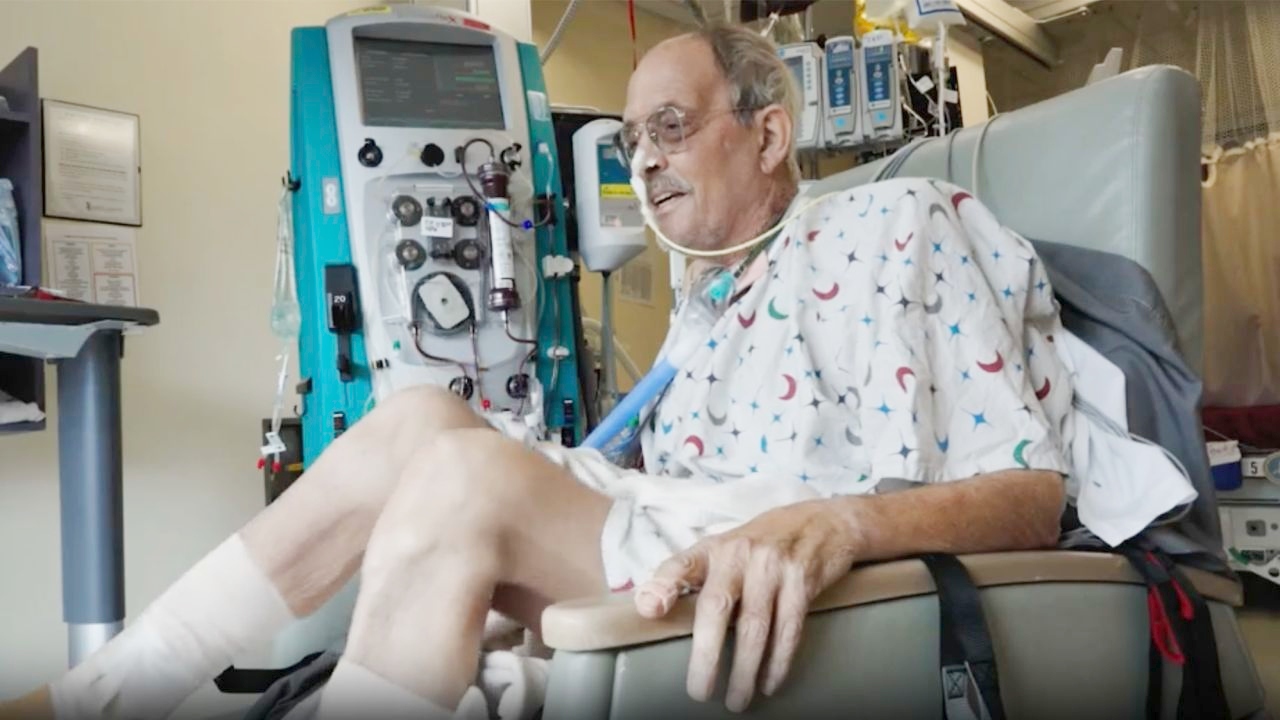The second person to undergo a transplanted pig heart has passed away almost six weeks after the experimental surgery, as announced by Maryland doctors on Tuesday.
The Experiment Ended Too Soon
Lawrence Faucette, the second living person to undergo a pig heart transplant, has died six weeks after the experimental procedure. The University of Maryland Medical Center, where the experimental procedure had been performed, said the heart had recently begun showing signs of rejection.
Faucette, a Navy veteran and father of two from Frederick, Maryland, had been turned down for a traditional heart transplant because of other health problems when he came to the Maryland hospital, out of options and expressing a wish to spend a little more time with his family.

Lawrence Faucette, 58, was facing heart failure and ineligible for a traditional heart transplant when he received the pig heart on Sept. 20.
In a statement released by the hospital, Faucette’s wife, Ann, said her husband “knew his time with us was short and this was his last chance to do for others. He never imagined he would survive as long as he did.”
“Mr. Faucette’s last wish was for us to make the most of what we have learned from our experience, so others may be guaranteed a chance for a new heart when a human organ is unavailable. He then told the team of doctors and nurses who gathered around him that he loved us. We will miss him tremendously,” Dr. Bartley Griffith, clinical director of the Cardiac Xenotransplantation Program at the University of Maryland School of Medicine, said in a statement.

Griffith had performed the experimental surgery.
His heart disease and pre-existing conditions made him ineligible for a traditional human heart transplant. “My only real hope left is to go with the pig heart, the xenotransplant,” Faucette told the hospital in an internal interview several days before the surgery.
“We have no expectations other than hoping for more time together,” his wife, Ann Faucette, said at the time. “That could be as simple as sitting on the front porch and having coffee together.”
The Maryland team last year performed the world’s first transplant of a heart from a genetically altered pig into another dying person. David Bennett survived two months before that heart failed, for reasons that aren’t completely clear, although signs of a pig virus later were found inside the organ.
Lessons from that first experiment led to changes, including better virus testing, before the second attempt.
One month after his surgery, his doctors said they believed his heart function was excellent and had withdrawn any drugs to support his heart function. “We’ve had no evidence of infections and no evidence of rejection right now,” Griffith said at the time.
Doctors had treated Faucette with an experimental antibody treatment to further suppress the immune system and prevent rejection. However, organ rejection is “the most significant challenge with traditional transplants involving human organs as well,” said UMMC in a statement.

Attempts at animal-to-human organ transplants — called xenotransplants — have failed for decades, as people’s immune systems immediately destroyed the foreign tissue. Now scientists are trying again using pigs genetically modified to make their organs more humanlike.
In mid-October, the hospital said Faucette had been able to stand and released a video showing him working hard in physical therapy to regain the strength needed to walk.
Cardiac xenotransplant chief Dr. Muhammad Mohiuddin said the team will analyze what happened with the heart as they continue studying pig organs.
Many scientists hope xenotransplants one day could compensate for the huge shortage of human organ donations. More than 100,000 people are on the nation’s list for a transplant, most awaiting kidneys, and thousands will die waiting.

A handful of scientific teams have tested pig kidneys and hearts in monkeys and in donated human bodies, hoping to learn enough for the Food and Drug Administration to allow formal xenotransplant studies.



